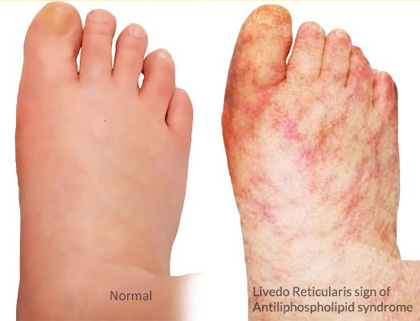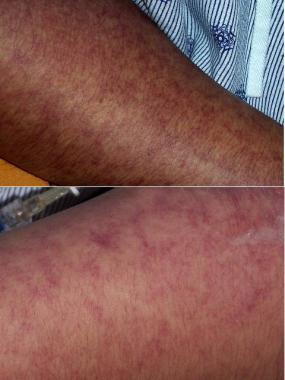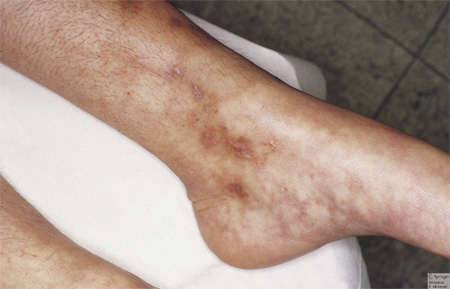
Antiphospholipid (AN-te-fos-fo-LIP-id) syndrome occurs when your immune system attacks some of the normal proteins in your blood. It can cause blood clots in your arteries or veins. And it can cause pregnancy complications, such as miscarriage and stillbirth.
Blood clots in your leg veins cause a condition known as deep vein thrombosis (DVT). Damage from blood clots in your organs, such as your kidneys, lungs or brain, depends on the extent and location of the clot. For instance, a clot in your brain can cause a stroke.
There's no cure for antiphospholipid syndrome, but medications can reduce your risk of blood clots.
What Causes Antiphospholipid Syndrome?
In antiphospholipid syndrome, your blood clots abnormally because your body mistakenly produces antibodies that attack phospholipids, a type of fat that plays a key role in clotting. Antibodies are proteins that normally protect the body against invaders, such as viruses and bacteria.
You can have antiphospholipid antibodies, but you'll be diagnosed with the syndrome only if they cause health problems. Antiphospholipid syndrome can be caused by an underlying condition, such as an autoimmune disorder, infection or certain medications, or you can develop the syndrome without an underlying cause.

What Are the Symptoms of Antiphospholipid Syndrome?
Signs and symptoms of antiphospholipid syndrome can include:
• Blood clots in your legs (DVT): The clots can travel to your lungs (pulmonary embolism).
• Repeated miscarriages or stillbirths: Other complications of pregnancy include premature delivery and high blood pressure during pregnancy (preeclampsia).
• Stroke: A stroke can occur in a young person who has antiphospholipid syndrome but no known risk factors for cardiovascular diseases.
• Transitory ischemic attack (TIA): Similar to a stroke, a TIA usually lasts only a few minutes and causes no permanent damage.
• Rash: Some people develop a red rash with a lacy, net-like pattern (livedo reticularis).
Less common signs and symptoms include:
• Neurological symptoms : Chronic headaches, including migraines; dementia and seizures are possible when a blood clot blocks blood flow to parts of your brain.

• Cardiovascular disease : Antiphospholipid syndrome can damage heart valves.
• Bleeding : Some people have a decrease in blood cells needed for clotting (platelets). If you have this condition (thrombocytopenia), you might have few or no symptoms.
However, if your platelet count drops too low, you might have episodes of bleeding, particularly from your nose and gums. You can also bleed into your skin, which will appear as patches of small red spots (petechiae). |